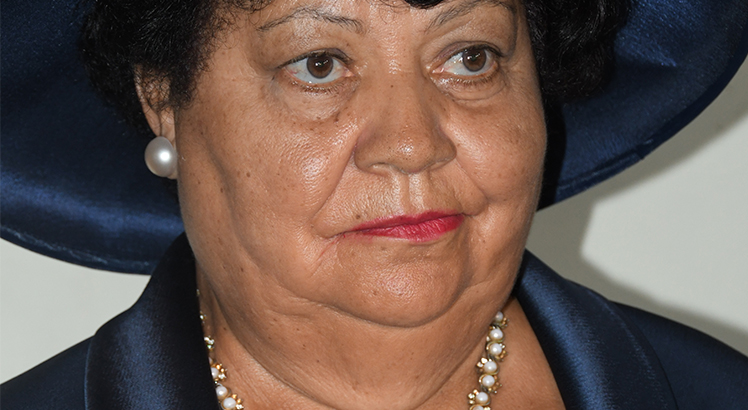Patel says UDF strategising for 2025
United Democratic Front (UDF) president Lilian Patel says the one-time governing party has embarked on a rebuilding exercise ahead of the 2025 Tripartite Elections.
She said this on Sunday in an interview following her endorsement by the party’s national executive committee (NEC) as president to replace Atupele Muluzi who resigned from active politics last week.

Said Patel: “UDF has a rich and enviable history, being a party that consolidated multiparty democracy in Malawi. As such, the focus will now be on rebuilding.
“We know that with the 50 percent plus one provision, the talk now is about political alliances. At the moment, the UDF wants to focus on the rebuilding process and issues of alliances will be decided on a need basis.”
She said the alliance UDF had with the former governing Democratic Progressive Party (DPP) in the court-sanctioned Fresh Presidential Election held on June 23 2020 was for electoral purposes only.
“Moving forward, the UDF will be led by a strategic plan that will be launched soon and that the party will also explore legitimate means for sustainability and funding in line with the Political Parties Act,” said Patel.
The endorsement means that Patel, who is Mangochi South parliamentarian, will hold the position until the next convention.
She expressed confidence that she will have support from the party’s members, including its NEC. She further appealed to former members who left due to various reasons to return and help rebuild the party.
Muluzi, son to UDF and the country’s former president Bakili Muluzi, resigned from active politics a week ago and announced that he will transition into a pan-African business executive.
The UDF constitution stipulates that when the president vacates the office either temporarily or permanently, he or she has to inform the secretary general and a new office-holder has to be chosen from the five vice-presidents of the party.
Then the party’s NEC, has to endorse the name of the chosen vice-president.
In a separate interview, Mzuzu University political analyst Chrispin Mphande said the party is supposed to do a needs analysis in its quest of rebuilding.
He said: “The party needs to do a needs analysis to see what was there and what is there now. This is a party that had over 80 members of Parliament. They already have a base having been the first political party to govern after the advent of multiparty.”
Mphande also hailed the transition of the party’s leadership, saying it ha shown maturity which other parties can learn from.
Another political analyst Ernest Thindwa said it was always going to be a challenge for UDF NEC to go against the choice of Atupele.
He said: “With all certainty the choice had a blessing of the party’s patron, Bakili. As such, NEC’s role in the leadership succession was reduced to endorsement.”
UDF’s parliamentary strength has been dwindling from 1999, a development critics have attributed to the party’s failure to strengthen its political base.
In 1994 the party scooped 85 seats, in 1999 it scooped 91 seats, in 2004 it got 49, in 2009 it had scooped 16 seats, in 2014 it won 14 seats and in 2019 it got 10 seats.





